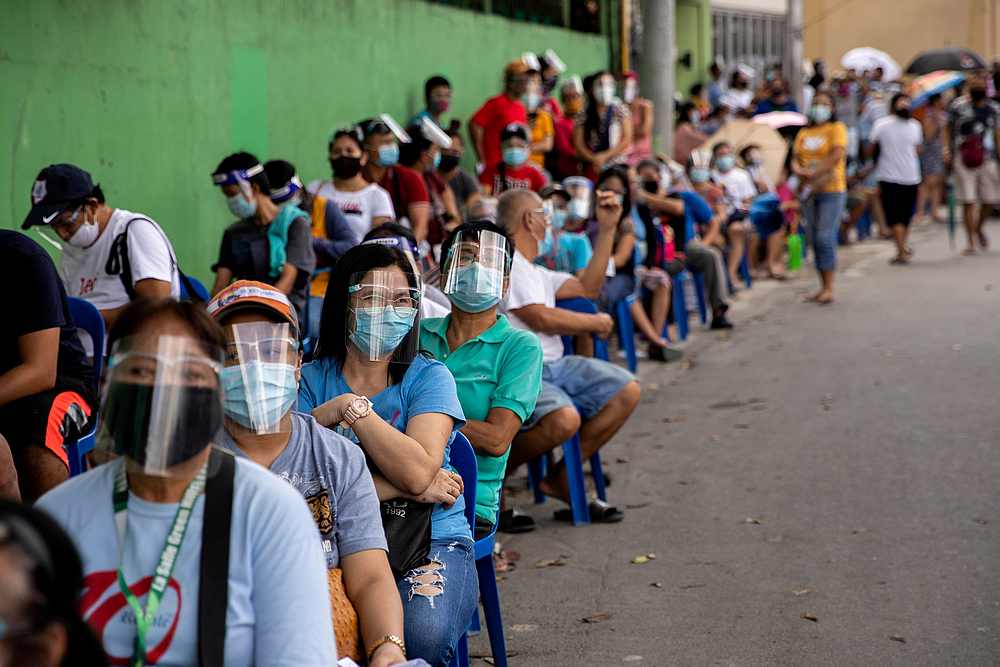MANILA, March 9 — Targeted coronavirus lockdowns were expanded in the Philippine capital today and night-time curfews reintroduced in hot spots as authorities battle a resurgence in infections.
The number of new daily cases has soared past 3,000 in recent days—twice as many as two weeks ago and the highest in five months—as more contagious variants of the virus spread.
Most of the new cases are in Metro Manila where officials have been quarantining compounds, streets, neighbourhoods and even hotels in a bid to contain new clusters, while minimising the economic impact.
The mayor of Quezon City—one of 16 that make up the capital—announced Tuesday that 11 more communities would be locked down for two weeks. The move potentially affects tens of thousands of people.
Manila City also announced a four-day lockdown for two neighbourhoods and several hotels.
Officials and business leaders have warned against shutting down the entire country again as its economy struggles to recover from the first recession in three decades.
“We cannot afford any more lockdowns,” Sergio Ortiz-Luis, head of the Employers Confederation of the Philippines, told a briefing Tuesday.
His comments echoed those of presidential spokesman Harry Roque, who all but ruled out another blanket lockdown.
“Too many people are going hungry,” Roque told reporters yesterday.
“Our appeal is for us to take care of ourselves so that we will be able to work.”
The country entered a months-long lockdown at the beginning of the pandemic which crippled the economy and threw millions out of work.
Measures have since been eased, but the wearing of masks and face shields in public is still mandatory and social distancing rules are in force.
As the country’s caseload tops 600,000 infections, authorities are cracking down on violators and reimposing night-time curfews in some areas such as San Juan City.
Quezon City police arrested nearly 300 people on Monday for disobeying health protocols.
Experts have warned the number of new infections could reach 5,000 to 6,000 a day by the end of March.
It comes as the country slowly rolls out Covid-19 vaccines to healthcare workers and soldiers, after the government came under fire for delays in procuring jabs.
Widespread inoculations will not start until later in the year, however, when the bulk of the vaccines are expected to arrive. — AFP






















